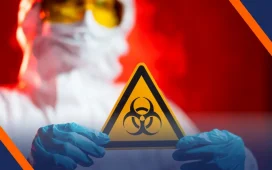 Adele Darlington
Adele DarlingtonIt was almost a year ago that Adele Darlington, who is 41 and from Warrington, was in a critical condition in hospital following massive bleeding while giving birth to her baby girl.
She was losing so much blood that she needed the equivalent of around three people’s blood volume given back to her, says NHS Blood and Transplant.
Doctors treating her used 65 units or bags of blood and blood products to save her life.
An average woman has nearly five litres of blood pumping round her body. Adele lost 15 litres after her caesarean delivery, due to complications.
 Adele Darlington
Adele DarlingtonAdele had a low-lying placenta – also called placenta previa – a risky condition that increases the chance of dangerous bleeds.
It took four hours of surgery to deliver her daughter, Jasmine, then nine more hours of operating to stem the bleeding and repair the life-threatening damage the condition had caused.
She needed an urgent hysterectomy to remove her womb as well as some of her cervix, a fallopian tube and an ovary, plus part of her bladder.
 NHSBT
NHSBTIt took four surgeons operating at once, alongside a team of theatre staff at Warrington Hospital, to save Adele.
Adele recalls: “I vaguely remember Jasmine being born and then I passed out.
“By this point I’d already lost six litres of blood and it was thought that I’d stabilised.”
But in the recovery room doctors realised she was bleeding internally and that she urgently needed the extra surgery.
Adele told BBC News: “I only realised how close I was to dying, when I was momentarily in the recovery room. I felt sheer panic that I may never see my husband or children again.”
Adele says she remembers crying and saying ‘I think I’m dying’ and telling the theatre staff that she was scared.
She says her husband was told to call their family – including their four other daughters – and tell them come and prepare to say goodbye.
In all, Adele was given 28 units of red blood cells, 20 units of fresh frozen plasma, nine units of cryoprecipitate and eight units of platelets – the biggest transfusion at the hospital since 2000.
A year on, to thank staff and support the Christmas appeal for blood donors, Adele has visited the Liverpool NHS Blood and Transplant regional centre, which sent most of the blood for her care.
Staff laid out the exact number of units of blood products she received, to illustrate how much help she needed.
 Adele Darlington
Adele DarlingtonAdele says she will forever be thankful to those who saved her: “Without the blood I received I basically wouldn’t be here. I’m here because of those donors.”
NHS Blood and Transplant says England remains on “amber alert” for low blood stocks. It says Christmas and New Year is always a challenging period, as donations drop.
People with O negative, B negative and Ro blood types are particularly needed in coming weeks.











